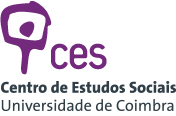PROTEST
Protest as a Democracy Test: Protest Culture under Transformation and as a Transformative Power
Tem havido uma tendência que aponta para o declínio democrático global (desdemocratização), transformando as estruturas de oportunidades políticas e criando novas lacunas de conhecimento sobre a forma como as culturas de protesto evoluem e se adaptam a contextos em mudança. Para colmatar esta lacuna, o projecto tem dois objectivos: em primeiro lugar, revelar se e como os processos de desdemocratização em curso afetam os padrões da cultura de protesto e como estes efeitos variam de acordo com a democracia (consolidada, nova e em desenvolvimento); segundo, rastrear se e como os padrões afetados da cultura de protesto influenciam o estado da democracia nos países-alvo, com foco na representação como inclusão das preferências dos cidadãos nas agendas políticas. Os resultados do inquérito lançarão luz sobre duas dimensões da cultura de protesto, particularmente a sua capacidade interna e as suas restrições externas. Isto será feito através da análise de contextos históricos de variações nas culturas de protesto em diferentes tipos de democracia, fatores que se cruzam para desencadear ou moldar protestos pró-democráticos/antidemocráticos, manipulação de quadros legais e discursivos pela elite política para conter o descontentamento público, papel dos media tradicionais e sociais criando oportunidades ou obstáculos para os atores envolvidos em políticas contenciosas, diferenças geracionais nas perceções e padrões de participação na cultura de protesto e, finalmente, influência da própria cultura de protesto no estado da democracia através da representação como resultado da participação cívica. O projeto interdisciplinar assenta no pluralismo metodológico e integra: pesquisa documental e análise jurídica, entrevistas narrativas biográficas e focus groups, análise de conteúdo quantitativa e qualitativa, análise crítica do discurso e análise visual, análise de rede para mapear coligações ator-discurso e metodologia Q. O projeto responde ao programa de trabalho “Cultura, Criatividade e Sociedade Inclusiva” abordando a participação cidadã (não)convencional para uma melhor representação em diferentes cenários culturais e democráticos.
Projeto financiado pelo Programa Horizonte Europa da Comissão Europeia, ref. 101177963.
- LUNDS UNIVERSITET, Suécia (coord.)
- UNIVERSITAS NEBRISSENSIS SA, Espanha
- SCOALA NATIONALA DE STUDII POLITICE SI ADMINISTRATIVE, Roménia
- CENTRO DE CIÊNCIAS SOCIAIS, Geórgia
- FORSCHUNGSSTELLE FUR UNABHANGIGE LITERATUR UND GESELLSCHAFTLICHE BEWEGUNGEN OSTEUROPAS AN DER UNIVERSITAT BREMEN, Alemanha
- ESTÚDIO ALMA MATER - UNIVERSITA DI BOLOGNA, Itália
- INSTYTUT FILOZOFII I SOCJOLOGII POLSKIEJ AKADEMII NAUK, Polónia
- BUDAPESTI CORVINUS EGYETEM, Hungria


